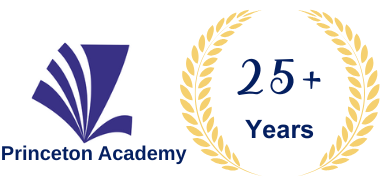Companies succeed when they create highly engaged employees since the greatest asset of any company is its people. By focusing on employee engagement, you’ll improve productivity, performan ce, and ultimately, the bottom line.
Whenever employees don’t feel engaged at work, there is a risk of losing them. It is difficult to retain top talent if they don’t feel connected to the company.
In this workshop you will learn new ways to reignite employee motivation and productivity.
Key benefits :
- Master the principles of employee engagement to build highly productive, results-driven business teams
- Introduce local leadership practices that involve staff and achieve higher levels of commitment
- Understand the root causes of poor performan ce, job stress and employee mismanagement
- Use engagement strategies to effectively manage projects and business teams
- Assess the level of engagement and find new ways to engage employees
- Use the processes of appreciative leadership to establish highly productive and motivated teams
- Practise appreciative leadership behaviours and learn to engage others when solving difficult problems
- Establish drivers to improve operating performan ce in small and large departments
Employee Engagement: Practices to Maximize Motivation & Employee Engagement
- The key drivers of employee engagement
- The critical role of management in employee engagement
Leadership to Actively Engage Employees and Achieve Outstanding Productivity
- Managing in the ‘real world’
- What it takes to achieve productivity, emotional wellness and resilience: appreciative leadership
Appreciative Leadership Behaviours for Building a Productive and Resilient Team
- Appreciative intelligence in re-framing problems as potential solutions
- Appreciative inquiry as a proble m-solving technique and way of communicating
- Appreciative leadership provides teams with the energy to manage change.
Communication and Motivation Techniques for High Performan ce Workplaces
- Motivation acceptances: how leadership talk affects day-to-day employee behaviour
- Communication strategies that engage staff and impact performan ce
Three Types of Leadership Talk, Three Different Impacts
- Directive talk: Create clarity
- Supportive talk: Build confidence
- Inquisitive talk: Learn, build ownership and accountability
Engagement Practices and Self-Management: Building Supportive Work Relationships
- Integrating appreciative dialogue into areas of everyday management most related to sustaining employee
engagement. - Increasing employee accountability and ownership
- Requesting changes in behaviours
- Managing performan ce
- Negotiating fair outcomes in conflict situations
COURSE SCHEDULE & FEES
DOWNLOAD COURSE CONTENTS
Please click the button below to download the course content. You'll need to provide your contact information to receive the document.
INCOMPANY/GROUP TRAINING REQUEST
Why Choose Our Incompany Program?
- 🎯 Tailored content specific to your business goals
- 👥 Train entire teams together, saving time and cost
- 📍 Delivered at your location or virtually
- 📅 Flexible scheduling to suit your timelines
- 📈 Increase retention and application of skills
